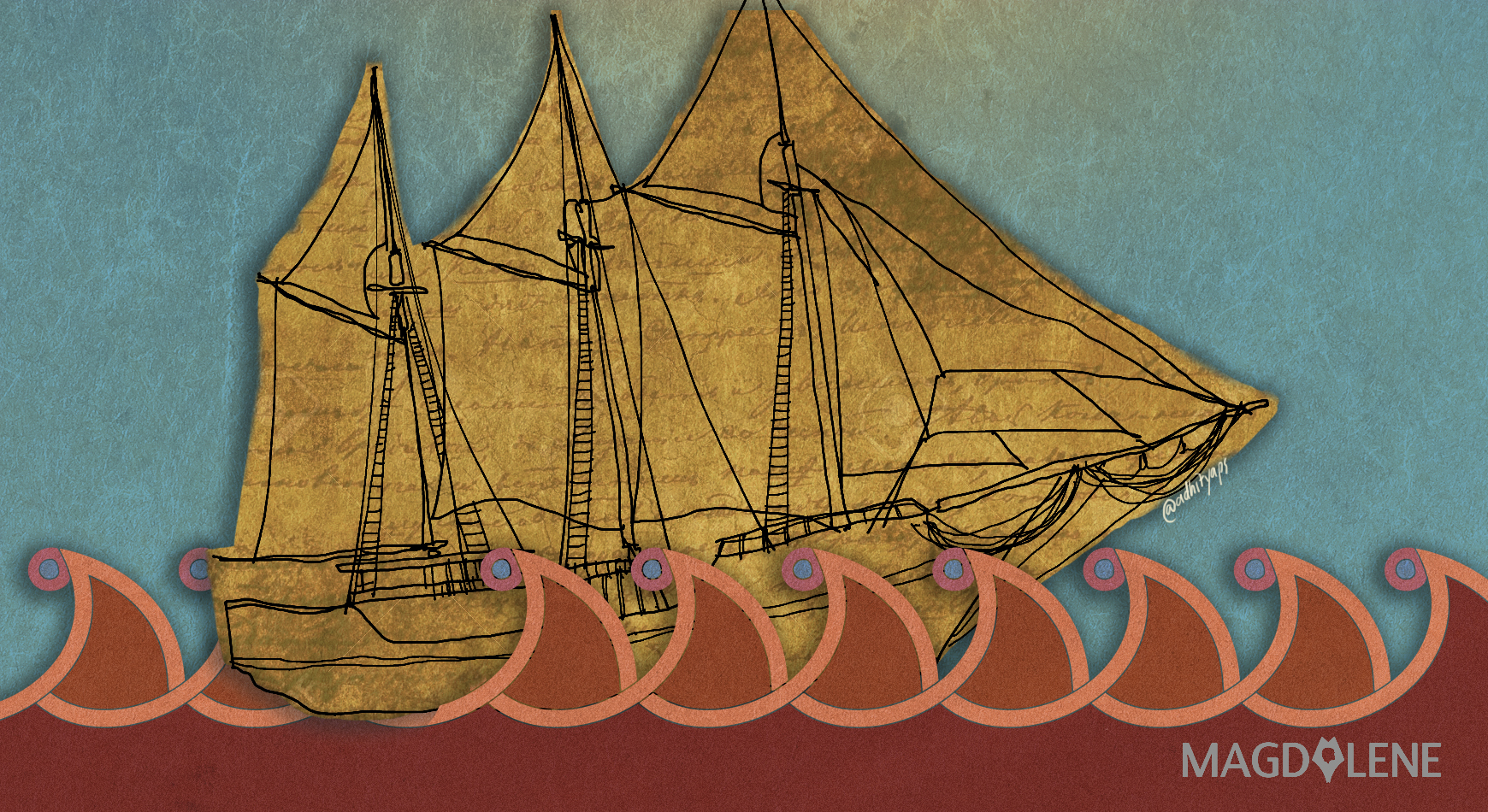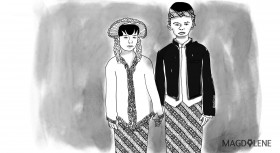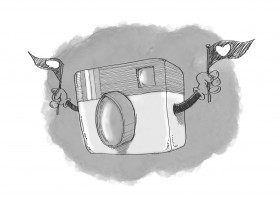I was raised in a suburb in a small town in Sulawesi. My parents were open-minded and I was brought up aware of of the gender equality. My mom was not worried at all when she sent her three daughters out of town for school.
I am thankful for this, still, the reality is that I was born into a family-oriented culture. Everyone wants to stick their nose into everything and pitch their unsolicited ideas to others.
I am a woman and a university graduate; I have spent some time abroad and I have a well-known family name. I am not showing off. In fact what I want to say is that despite this background, I still cannot escape some of the more restrictive traditions of my culture, one of them is the practice of panai.
Uang panai or panaik or panae is a compulsory dowry to be paid by the groom or groom’s family to the bride’s family. This practice has been adopted a long time ago by the Bugis-Makassar ethnic groups and other areas of Sulawesi as the result of the acculturation process. No one really knows how this practice began, but it is said that a long time ago, parents of women wanted to test the seriousness and effort of a man by adopting this tradition.
Under this system, a man who wishes to propose a woman has to give the panai in the amount agreed by both sides. Failing to meet this requirement, the two families are forced to renegotiate, and the bride’s family may even reject the proposal.
Also read: Sex and Marriage a Public Affair in Indonesia
The amount of panai is determined by a bibit, bobot, bebet or the breeding and quality of the woman. If the woman has a higher education, the panai will be higher. This rule is also applied to the wealth and the social status of the family and
Panai is meant to be a wedding party cost that will be held later. Over time panai is sometimes combined with mahar or dowry money. The nominal is determined through agreement by both side, or sometimes only the woman’s sides determines the nominal.
Panai practice is seen as a significant factor in a wedding. The groom’s family will prepare a huge amount of panai with their personal funds. The parents will prepare the panai to meet the agreed amount, even going as far as selling their own land or rice field. Some say this is the last “sacrifice” that parents make for their child.
Some see panai as an early sign of responsibility of the man who will provide for his wife-to-be. Some see panai as a form of appreciation for a woman. But panai practice has been criticized, especially when it becomes a factor in obstructing a couple to marry. Just recently a planned wedding went wrong went viral, apparently caused by unfulfilled panai, resulting in the couple crying in their own wedding reception.
Also read: Married at 21: Can I Still be Called a Feminist?
Leave out the narration of match-making or arranged marriage in panai for a second, and think of the issue of consensual relationship between a man or woman. Often panai hurts the grooms the most when they can’t meet the high panai rate, forcing them to retreat from their proposal. Many engagements have been canceled because of failure to meet the panai. Women, too, are disadvantaged by this practice, as our choice does not matter if our partner-to-be cannot meet the price.
No matter how open-minded my parents are, they would be horrified by the idea of abandoning this tradition. My family would go crazy if I spoke out against panai. It’s difficult for a Sulawesi woman like me to criticize old practices, yet the practice is clearly outdated.
We still have a long way to go to admit women’s full existence as a being who can stand up for themselves and choose on their will. Perhaps I could apply a win-win solution for my panai and I’ll make sure it won’t hurt anyone – myself and my future spouse. If you want to have panai and it works well for both parties, then good for you. But all of us should be able to make or our choice, with or without panai.







Comments